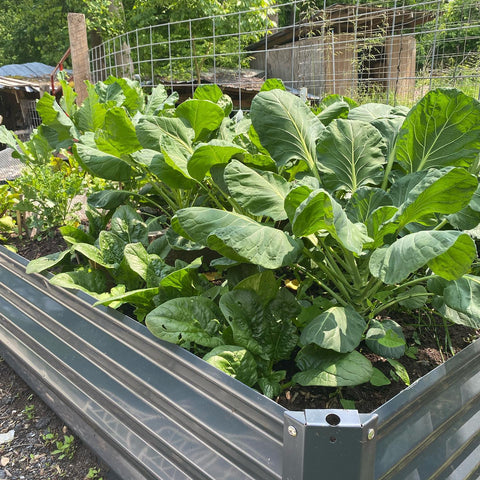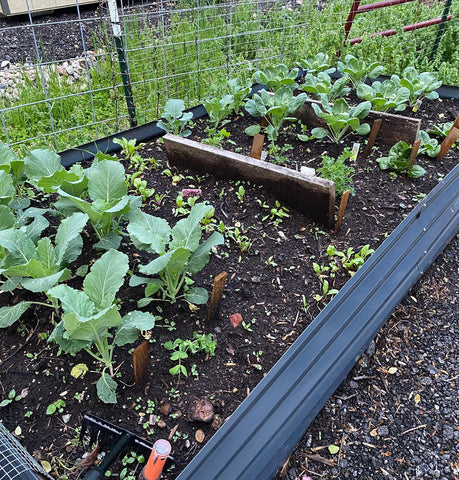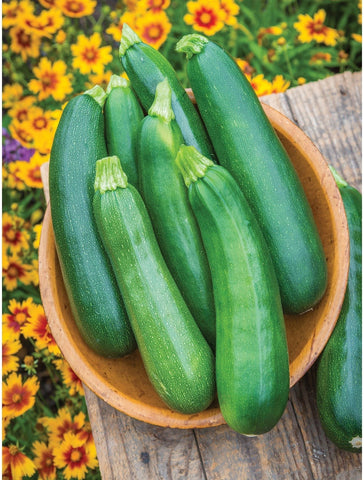You could dream of living with an acre of the earth on a small farm in the countryside. But the dream may feel far away if you live in a small urban apartment, like so many people. This guide will guide you on how to start Apartment Gardening.The following content also has some reference value for raised garden beds.

What is Apartment/ Urban Gardening?
The reality is that most people worldwide live in towns, and there are still more urban dwellers. Not all of us can be peasants. However, that does not mean that we do not make our own food; everybody in their apartment can start up a small ‘garden.’ Indeed, everyone needs to do that.
If you want to live longer, it’s a wonderful place, to begin with, to develop at least some of your own food. Looking for allocations and community gardening in your area is a wonderful idea to give you access to some food-producing land.
You may also contact the council or local landowners without such opportunities to start your own scheme. Can you and your neighbors even club and build a garden on the roof or a community area?
In France, the law actually decrees that solar panels or plants should cover all new roofs.

You can still start a little garden in your apartment, even if these choices are not feasible, and you may begin to take care of your food.
Why You Should Start Gardening in Your Apartment?
Only a small indoor garden can benefit people and the world, and you might wonder just how much a very small garden can do. Advantages are:
1. Values for wellbeing
While all plants make oxygen and carbon dioxide is extracted, did you know some plants clean the air?
Plants such as peace lilies and spider plants are low-care household plants that can eliminate all forms of environmental pollutants, such as ammonia (present in various household cleaners), and formaldehyde, according to NASA’s Clean Air Report. We will shortly be entering more such plants.
In cities, Smog is not the only problem for air quality.
Indoor air pollution is as widespread (or more, if not more so), and it not only raises the risk of a wide variety of health conditions, leading to “sick building syndrome” (cold-like signs triggered by dry polluted indoor air). According to the Sydney University of Technology, between only three and six plants will substantially reduce this risk factor.
2. Nature Reconnection
In addition to the true health benefits of plants, nature offers great emotional and mental advantages. Plants add to your home the positive, soothing effects of nature. In fact, the University of Michigan’s research showed that they are increasing efficiency, creativity, cognitive output (up to 20%!), and memory retention.
Flowers have particularly been shown to improve mood. Horticultural therapy for people with dementia, schizophrenia, and depression is also used as a supplemental treatment.
3. Saving and safety
Reduce the purchase of food from unhealthy mono-crop farming.
Reduce food miles and reduce CO2 levels.
The recycling and storage of food waste at home.
And it can also save you money if you grow some food in your own house.
4. Price for medicines
In the long term, growing useful plants will save you money.
In addition to growing foods like herbs and vegetables, all types of plants can be cultivated, which can be used for their medicinal purposes.
Echinacea and camomile, for example, develop into immune teas. Create peppermint and lavender essential oils and make all kinds of DIY recipes with Aloe Vera.
Improve yourself and the planet’s air quality in general by raising the number of plants worldwide.
Again, indoor plants alone minimize about 10 percent of carbon dioxide in the air, according to the University of Technology Sydney. To offset more carbon, additional CO2-consumptive plants such as bamboo.

5. Disposal of responsible waste
Compost (like scrap food and paper products) is an incredible way to deal with organic waste.
And you don’t need a huge battery in your backyard, thanks to technology makes it more available. You can do the right thing in the comfort of your own kitchen and provide a full waste disposal system with your own garden to complement your compost bin.
I hope you got a clear idea of “Apartment Gardening Full Guide for Beginners with Plants”









